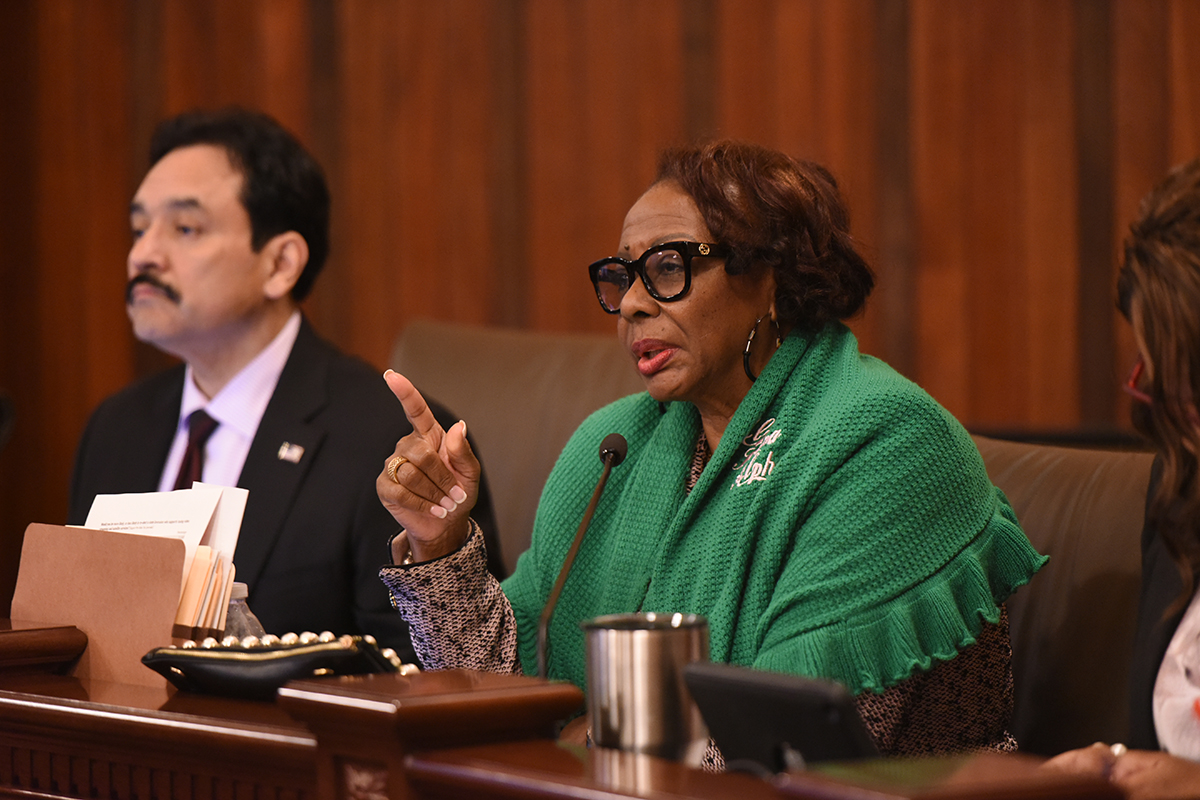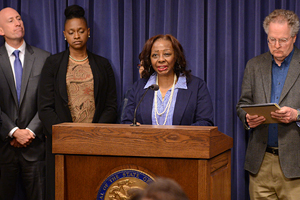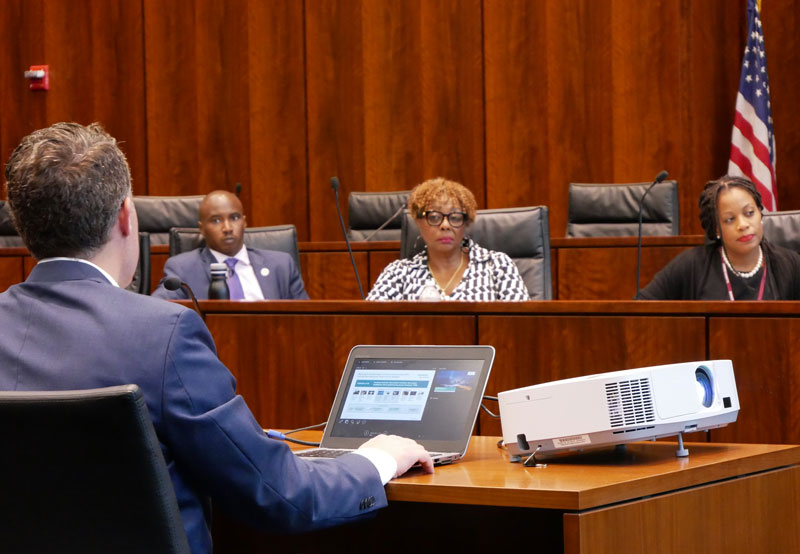- Details
- Category: Uncategorised

CHICAGO – Free eyeglasses, health screenings, giveaways, live entertainment, and family activities will be available at the 16th Annual Family Health & Fitness Fair, which will be held in Illinois’s 3rd Senate District in Chicago’s Bronzeville neighborhood on the South Side.
Get back-to-school ready with free immunizations, school supplies, and haircuts. More than 50 vendors will participate, which is the most in the event’s history. (Vendor list attached.)
WHEN: 10 a.m.– 2 p.m. Saturday, August 3, 2019
WHERE: Illinois Institute of Technology on the field north of S. R. Crown Hall at 33rd & State Street
Other highlights include:
- Free Chicago CityKey cards will be issued by the City Clerk of Chicago. CityKey is a valid government ID card issued to Chicago residents (10 a.m.–noon).
- Illinois Secretary of State will issue state IDs.
- Divvy-Lyft will introduce their D4E, or Divvy for Everyone, a Chicago program that offers a $5 annual membership for those in financial need.
- Health services, including eye examinations, massages, and health screenings for blood pressure, cholesterol, glucose, osteoporosis, and diabetes.
- The St. Bernard Hospital Pediatric Mobile Health Unit and Illinois Department of Public Health’s W.O.W. Mobile will provide health examinations and immunizations.
- AT&T will provide free residential document shredding.
- Details
- Category: Uncategorised

House Bill 1438 would allow Illinois residents to possess up to 30 grams of cannabis, 5 grams of cannabis concentrate or 500 milligrams of THC in a cannabis-infused product. The bill also allows for adults 21 and older to grow up to five medical cannabis plants in their home, providing certain conditions are met.
“Communities of color in Illinois have been disproportionately impacted by misguided cannabis policy for far too long,” Hunter said. “I supported the legalization of adult-use cannabis in our state to help address the disproportionate impact of prohibition on people of color by expunging criminal convictions and promote equitable participation in the legal marijuana industry by investing in the communities hardest hit by the War on Drugs.”
Under the bill, cannabis convictions would be expunged in two ways. Convictions for use up to 30 grams would be pardoned by the governor, and state’s attorneys or individuals can petition the court to vacate convictions for amounts between 30-500 grams.
- Details
- Category: Uncategorised
 SPRINGFIELD–State Senator Mattie Hunter (D-Chicago, 3rd) joined community leaders and affordable housing advocates from across Illinois at the State Capitol today in calling for more investments in affordable housing in the capital budget.
SPRINGFIELD–State Senator Mattie Hunter (D-Chicago, 3rd) joined community leaders and affordable housing advocates from across Illinois at the State Capitol today in calling for more investments in affordable housing in the capital budget.
“Right now, we have an opportunity – one that has not come around in more than a decade – to make a sizable impact on the affordable housing needs of our communities,” said Hunter, the Chairman of the Senate’s Special Committee on Housing. “There are neighborhoods in my district that are still struggling to recover from the economic crisis and are starved for investment, and I know that many communities across the state from urban, suburban and rural communities face similar challenges.”
Last week, Gov. JB Pritzker proposed investing $175 million for affordable housing in the capital budget. Hunter unified with a coalition of housing developers, supportive housing providers, municipal government and community-based organizations to urge the General Assembly to expand on this foundation by allocating additional funds to create stronger communities by expanding access to safe, decent and affordable housing.
- Details
- Category: Uncategorised
 CHICAGO – State Senator Mattie Hunter (D-Chicago) convened a Senate sub-committee on energy innovation in Chicago this afternoon to discuss ways artificial intelligence could be applied within the energy market in Illinois.
CHICAGO – State Senator Mattie Hunter (D-Chicago) convened a Senate sub-committee on energy innovation in Chicago this afternoon to discuss ways artificial intelligence could be applied within the energy market in Illinois.
“There’s a proven need for clean, affordable and reliable energy,” Hunter said. “It’s essential to fight poverty and climate change. Artificial intelligence is one of the resources we can tap into to help us meet that need.”
Representatives from Siemens, Argonne National Laboratory, Illinois Institute of Technology, Illinois Department of Military Affairs, Illinois Commerce Commission, Citizen’s Utility Board and ComEd provided testimony on how AI can affect the way that energy is generated, transmitted, sold and consumed.
The discussion also touched on how AI in energy could affect the economy, help save millions of dollars in energy costs, cybersecurity threat detection and response and how to use it to manage the high volume of data in the energy sector.
“Although AI is in its early stages, it’s clear that it’s supposed to revolutionize how we produce and distribute energy,” Hunter said. “As this technology develops, we will continue to discuss ways and look for opportunities for Illinois to become one of the leaders in AI within the energy sector.”
More Articles …
Page 9 of 15

